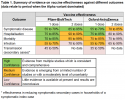I had some thoughts related to this (invalid) excuse for the evident failure of GWR to provide an adequate train service, which followed on from the “declassify first class when crowded?” thread at https://www.railforums.co.uk/thread...hen-there-is-overcrowding.222240/post-5309015 …
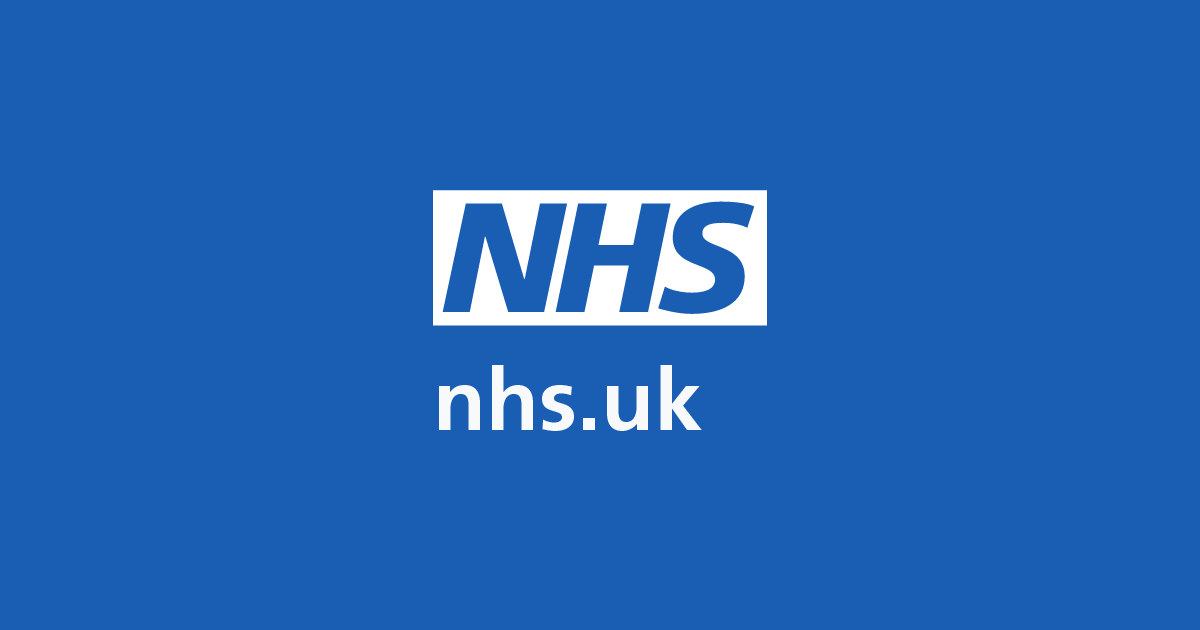
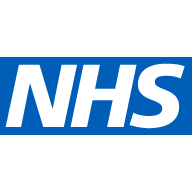 www.nhs.uk
www.nhs.uk
This has been the case since April:

 www.gov.uk
www.gov.uk
The taxonomy is important here. I'm guessing you actually mean these staff members are self-isolating on a short-term basis (after being close to, or living with, etc., somebody that tested positive). More recently, even in those circumstances, self-isolation is often not necessary, in particular if you are fully vaccinated, which every adult in the country has now had the opportunity to be (and so in this context, if you are not, and you have to self-isolate, it has been your active choice to self-isolate, not a necessary action, since, had you been vaccinated, you would not have had to).
It's slightly complicated, and the links start here:

 www.nhs.uk
www.nhs.uk
To my mind, this makes it strongly arguable that not to have been vaccinated (unless you fall into one of the exempt categories as per the first list in the quote immediately above) is to have chosen to make yourself unavailable to work for periods of ten days, voluntarily and unnecessarily. Whether that makes you in breach of your employment contract would be a matter for the lawyers. Standard phrases along the lines of “to be available for work except under exceptional circumstances outside your control” and so on, make that feel pretty clear from my perspective, though.
At this point, 18 months in, I'd suggest that competent rail firms should:
(a) have hired enough “extra” staff to cover in this new situation of predictably higher staff absence (potentially on fixed-term contracts if they consider that they will need fewer again in the short term). It's enough time to have done that, surely.
(b) have required all staff to be fully vaccinated (unless exempt) (and publicised this fact). I'm also surprised that this hasn't happened. It would make me as a potential passenger less unlikely to travel by train if I knew at least all the staff were protected, even if there is no mandate for passengers to be. Search for “airline vaccination mandate” for example, for the way in which another transport industry sector is moving towards this. Amtrak in the USA has already put this in place starting November 1st. Providing a weekly negative test result is an alternative with Amtrak's policy.
Too long to quote here, in summary many US corporations are now moving to a more or less strict vaccine mandate, including Amtrak as mentioned above:
https://fortune.com/2021/08/23/companies-requiring-vaccines-workers-vaccination-mandatory/
This turned out to be a longer-than-planned diversion into strategies for public-facing organisations to maintain operations and present a “safe impression” to the public, but I'm concerned that, 18 months in, rail companies still seem to be failing dramatically to maintain (even a reduced cf pre-pandemic) service, when the ways to do so have been clear for a long time, and that this (and consequently avoiding overcrowding of the type that triggered this thread) is absolutely central to getting people back onto the railway.
As a final aside, I was planning to take a train back from Marylebone the other evening a few weeks ago, I think it was the 1918 departure, and it was not at crush capacity, but all vestibules and some aisles contained standing passengers. It was full enough that I decided to bail out and took the 1930 from Paddington instead, which had plenty of seats (though was very far from empty). It feels as if some rapid adjustments are required to get the right amount of rolling stock provision for the right trains, with great changes in usage when compared to a couple of years ago. I hope the data is being gathered with great urgency to allow these changes to be made on the basis of new demand patterns!
That feels like a contradiction in terms — train staff (assuming you mean on-train staff, those that actually work on the trains rather than elsewhere in the organisation) can't have been working throughout the pandemic, if they have been shielding. Separately, shielding is no longer advised at all, even for those that were advised to in earlier phases.Sadly people including train staff who’ve been working throughout the pandemic are still having to shield.

How to avoid catching and spreading COVID-19
Read NHS advice about how you can reduce your risk of catching COVID-19 and spreading it to other people.
People at high risk (clinically extremely vulnerable) from coronavirus (COVID-19) are advised to follow the same guidance as everyone else. This means you are no longer advised to stay at home (shield).
This has been the case since April:

Shielding advice for the clinically extremely vulnerable to stop from April
More than 3.79 million clinically extremely vulnerable people in England will be informed they are no longer advised to shield from Thursday 1 April 2021.
More than 3.79 million clinically extremely vulnerable people in England will be informed they are no longer advised to shield from Thursday 1 April 2021.
The taxonomy is important here. I'm guessing you actually mean these staff members are self-isolating on a short-term basis (after being close to, or living with, etc., somebody that tested positive). More recently, even in those circumstances, self-isolation is often not necessary, in particular if you are fully vaccinated, which every adult in the country has now had the opportunity to be (and so in this context, if you are not, and you have to self-isolate, it has been your active choice to self-isolate, not a necessary action, since, had you been vaccinated, you would not have had to).
It's slightly complicated, and the links start here:

COVID-19 symptoms and what to do
Find out about the symptoms of COVID-19, what to do if you or your child has them and when to get medical help.
[…]Self-isolation rules have changed. You will not need to self-isolate in certain situations.
When you do not need to self-isolate
If someone you live with has symptoms of COVID-19, or has tested positive for COVID-19, you will not need to self-isolate if any of the following apply:
Even if you do not have symptoms, you should still:
- you're fully vaccinated – this means 14 days have passed since your final dose of a COVID-19 vaccine given by the NHS
- you're under 18 years, 6 months old
- you're taking part or have taken part in a COVID-19 vaccine trial
- you're not able to get vaccinated for medical reasons
- get a PCR test on GOV.UK to check if you have COVID-19
- follow advice on how to avoid catching and spreading COVID-19
- consider limiting contact with people who are at higher risk from COVID-19
To my mind, this makes it strongly arguable that not to have been vaccinated (unless you fall into one of the exempt categories as per the first list in the quote immediately above) is to have chosen to make yourself unavailable to work for periods of ten days, voluntarily and unnecessarily. Whether that makes you in breach of your employment contract would be a matter for the lawyers. Standard phrases along the lines of “to be available for work except under exceptional circumstances outside your control” and so on, make that feel pretty clear from my perspective, though.
At this point, 18 months in, I'd suggest that competent rail firms should:
(a) have hired enough “extra” staff to cover in this new situation of predictably higher staff absence (potentially on fixed-term contracts if they consider that they will need fewer again in the short term). It's enough time to have done that, surely.
(b) have required all staff to be fully vaccinated (unless exempt) (and publicised this fact). I'm also surprised that this hasn't happened. It would make me as a potential passenger less unlikely to travel by train if I knew at least all the staff were protected, even if there is no mandate for passengers to be. Search for “airline vaccination mandate” for example, for the way in which another transport industry sector is moving towards this. Amtrak in the USA has already put this in place starting November 1st. Providing a weekly negative test result is an alternative with Amtrak's policy.
Too long to quote here, in summary many US corporations are now moving to a more or less strict vaccine mandate, including Amtrak as mentioned above:
https://fortune.com/2021/08/23/companies-requiring-vaccines-workers-vaccination-mandatory/
Amtrak All company employees must either be vaccinated or start getting weekly COVID tests, effective Nov. 1, per Travel + Leisure. Starting Oct. 4, all new employees will be required to show proof of vaccination before they begin their role. There will be exemptions for medical or religious reasons.
This turned out to be a longer-than-planned diversion into strategies for public-facing organisations to maintain operations and present a “safe impression” to the public, but I'm concerned that, 18 months in, rail companies still seem to be failing dramatically to maintain (even a reduced cf pre-pandemic) service, when the ways to do so have been clear for a long time, and that this (and consequently avoiding overcrowding of the type that triggered this thread) is absolutely central to getting people back onto the railway.
As a final aside, I was planning to take a train back from Marylebone the other evening a few weeks ago, I think it was the 1918 departure, and it was not at crush capacity, but all vestibules and some aisles contained standing passengers. It was full enough that I decided to bail out and took the 1930 from Paddington instead, which had plenty of seats (though was very far from empty). It feels as if some rapid adjustments are required to get the right amount of rolling stock provision for the right trains, with great changes in usage when compared to a couple of years ago. I hope the data is being gathered with great urgency to allow these changes to be made on the basis of new demand patterns!
Last edited:


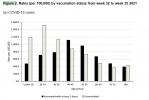
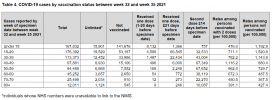

 , to muddy the waters further
, to muddy the waters further 